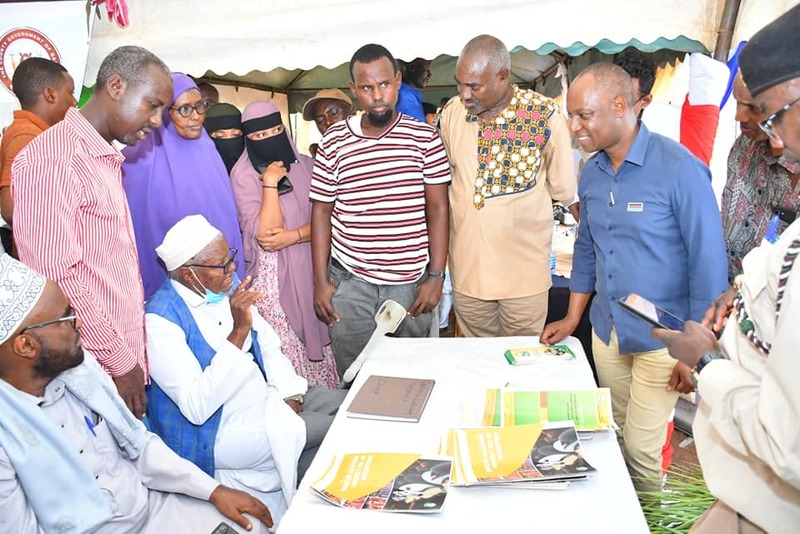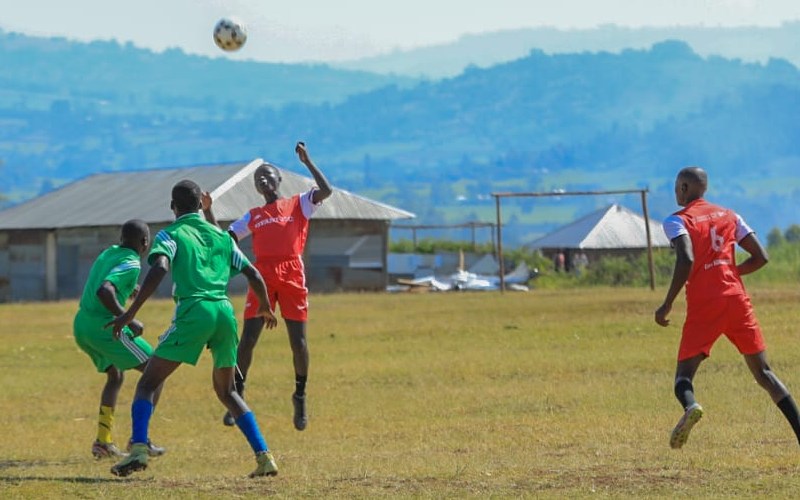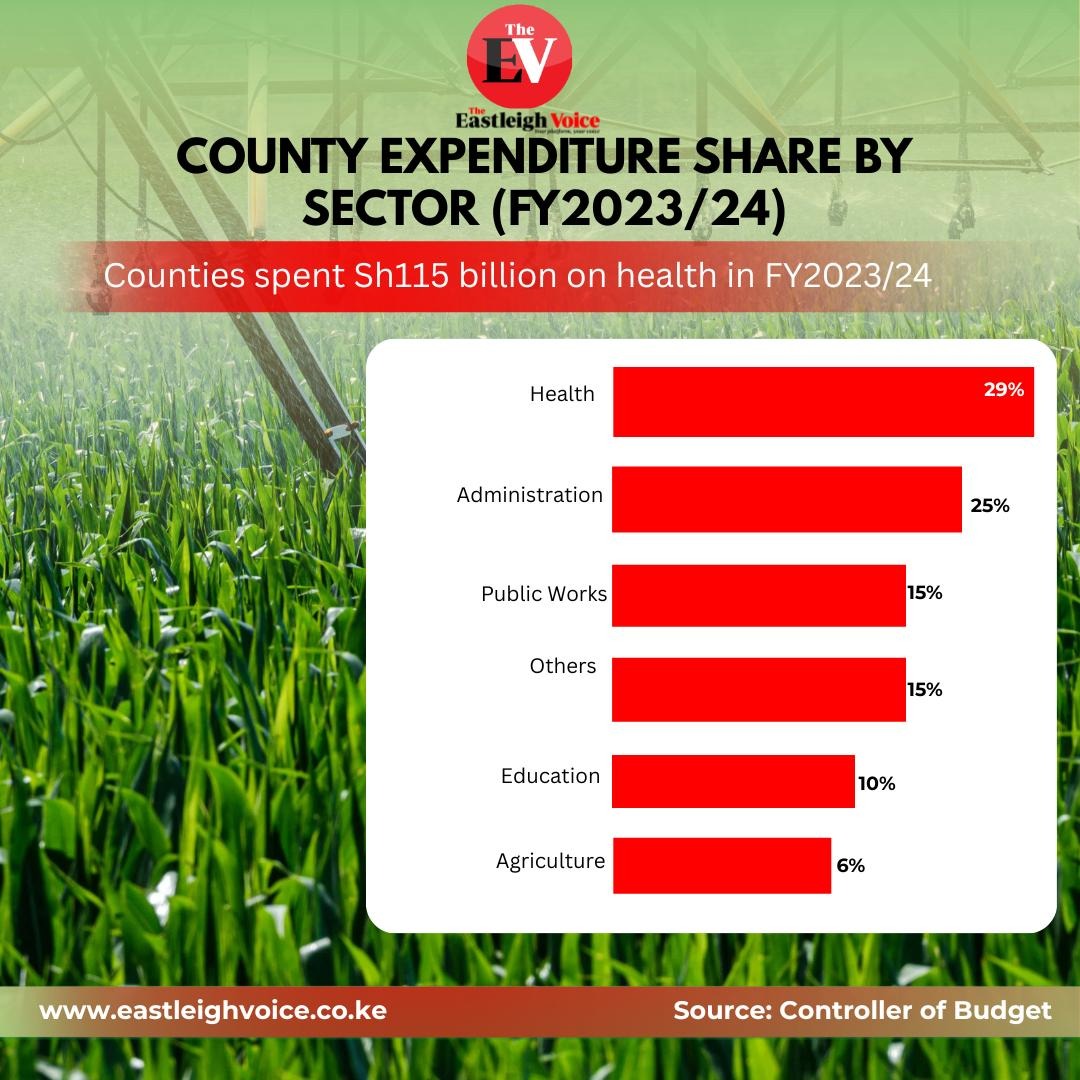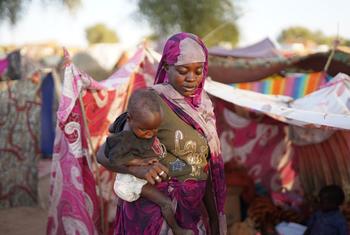State to safeguard livestock health in Garissa through disease detection mechanisms

The pastoral communities in Garissa County continue to face challenges from drought and diseases, leading to significant livestock losses.
The State Department of Livestock Development says the government has initiated efforts to maintain high levels of animal health.
Principal Secretary Jonathan Mueke said they are implementing mitigation measures and mechanisms towards the delivery of efficient and effective livestock production and veterinary services.
More To Read
- Garissa County launches digital livestock vaccination drive to boost pastoralist resilience
- Garissa resident sues National Assembly over police service commission appointments
- Garissa human rights activists demand justice for student allegedly raped and killed by guardian
- Over 170,000 livestock targeted as Mandera and Garissa ramp up vaccination drives
- Garissa town residents call for urgent drainage fix as floodwaters swamp businesses, homes
- Traders count heavy losses as inferno ravages Garissa’s Hagadera refugee camp market
Mueke revealed that, in collaboration with all counties' veterinary services, they have established a technological surveillance early warning protection system.
“This system has proven effective in detecting disease outbreaks across the country,” he said during his address in Garissa.
This, he noted, enabled them to successfully contain the Rift Valley Fever associated with the El Niño rains.
A confirmed case of Rift Valley Fever (RVF) in livestock in Garissa County was reported on Tuesday, following the testing of at least 100 serum samples by the Kenya Medical Research Institute (KEMRI).
Livestock Development Director Haret Hambe specified that the infected cow was found in Iftin Ward, Garissa Township. Human cases of RVF were also reported in counties, including Mombasa, Marsabit, and Wajir.
Accompanied by officials from the Dairy Board of Kenya, Kenya Leather Development Council, Livestock Council, and Veterinary Service Directorate, Mueke led a working visit tour to Garissa.
Mueke celebrated the successful Livestock Commercialization promotion and sensitization field day organized by the Kenya Dairy Board in Garissa.
The event aimed to educate livestock farmers on optimizing both the quality and quantity of their products to meet market demands, bolstering the livestock sector.
PS Mueke reaffirmed their commitment to fostering an environment conducive to farming activities as part of the State Department for Livestock Development initiatives.
They include facilitating market connections for livestock producers and ensuring a rise in their income levels.
He pledged additional resources and support to boost food productivity in the region, emphasizing the government's dedication to uplifting the agricultural sector.
Garissa Township MP Mohamed Dekow Barrow expressed gratitude for the visit from officials of the Dairy Board of Kenya, Kenya Leather Development Council, Livestock Council, and Veterinary Service Directorate.
He welcomed the opening of the offices of the Dairy Board and Leather Development Council, considering it excellent news.
PS Jonathan Mueke evaluated the potential of the Korakora Hidig Milk Women Group Dairy Processing Plant in Garissa and committed to supporting its operationalization to provide a ready market for cow and camel milk.
The plan aims to reinforce the dairy sector and the farmers' pivotal role in contributing to the nation's economic development.
Korakora village, situated approximately 21 kilometers from Garissa town, has been the food basket of the constituency. The village is located along the Tana River and depends on it as the primary source of water for the people and livestock.
Stakeholders at the meeting underscored the implementation of international standards on animal health, production, and food safety. This will contribute to the transformation of livestock production into a commercially oriented enterprise that ensures sustainable food and nutrition security in the County.
According to the 2019 census, Garissa County had 816,057 camels, 3,857,292 goats, 2,746,577 sheep, 1,407,170 indigenous cattle, 6,063 exotic dairy cattle, 7,458 exotic beef cattle, and 47,645 farmers.
The pastoral communities in Garissa County continue to face challenges from drought and diseases, leading to significant livestock losses.
In 2022, the County lost over two million livestock due to poor rainfall caused by climate shocks.
Pastoral communities in the region depend on livestock keeping for both income and prestige.
Top Stories Today










































